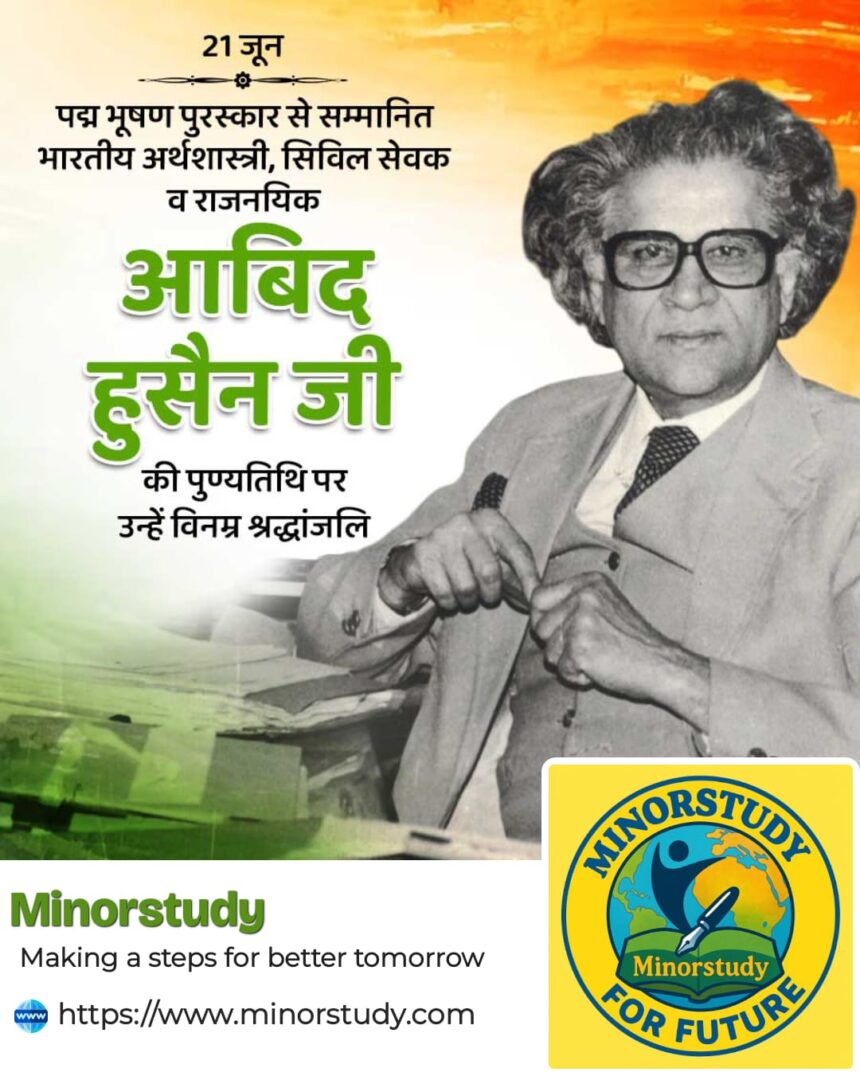🧭 Introduction: The Gentle Diplomat Who Shaped Modern India’s Global Image
In the pages of Indian diplomatic and economic history, Mr. Abid Hussain stands as an unsung hero—a visionary economist, a soft-spoken statesman, and a firm believer in global cooperation. From negotiating trade reforms to representing India at the global level, Mr. Hussain combined economic intellect with diplomatic finesse.
- 🏛️ History & Background of Mr. Abid Hussain
- 📌 9 Powerful Facts About Mr. Abid Hussain
- 📅 Timeline of Mr. Abid Hussain’s Career
- 📚 Significance of Abid Hussain in Indian & Global Society
- 1. Pioneer of Global Thinking in Indian Policy
- 2. Strengthened Indo-U.S. Diplomacy
- 3. Cultural Integration Advocate
- 4. Champion of Media Freedom
- ❓ Frequently Asked Questions (FAQs)
- Q1: What were Mr. Abid Hussain’s major contributions to India?
- Q2: Did he belong to any political party?
- Q3: What legacy did he leave behind?
- Q4: How is he remembered today?
- Q5: Did he receive any major awards?
- 🕊️ Observance and Respect
- 🎯 Important Points to Remember
- 🎉 Heartfelt Wishes in Honour of Abid Hussain Ji
- 🌍 How He Matters in Our Daily Lives
- 🧾 Conclusion: A Quiet Hero in India’s Grand Narrative
He wasn’t just an ambassador to the United States; he was an ambassador of modern Indian thought, soft power, and policy pragmatism. Let us take a heartfelt and insightful look at his history, contributions, timeline, significance, and the impact he left on our everyday lives.
🏛️ History & Background of Mr. Abid Hussain
Full Name: Abid Hussain
Born: March 26, 1926, Hyderabad, British India
Died: June 21, 2012, London
Education: Economics and Law (including at Osmania University and London School of Economics)
Career: Bureaucrat, Economist, Diplomat, Policy Expert
Key Roles: Secretary of Commerce, Ambassador to the U.S., UN Adviser
Mr. Hussain was known for his clarity in thought, unbiased policymaking, and vision for global integration, even before globalization became a buzzword in India.
📌 9 Powerful Facts About Mr. Abid Hussain
Architect of Indian Economic Liberalization – Played a key role in ushering trade reforms in the 1980s and early 90s.
Indian Ambassador to the United States (1990–1992) – Strengthened Indo-U.S. relations during a pivotal global shift.
UN Adviser & International Expert – Worked with the UNCTAD, UNESCO, and several international think tanks.
Commerce Secretary of India – Advocated economic modernization and simplification of export-import policies.
Chairman of Various Commissions – Led the Press Council, Minorities Commission, and telecom policy forums.
Prolific Academic Writer – Authored several reports and papers on liberalization, trade, and development.
Promoter of Pluralism and Secularism – Always stood for inclusive growth and multicultural coexistence.
Served in Planning Commission – Brought forward reforms in policy implementation and social equity.
Global Voice for India – Known internationally as a calm yet assertive representative of India’s developmental diplomacy.
📅 Timeline of Mr. Abid Hussain’s Career
| Year | Event / Role |
|---|---|
| 1926 | Born in Hyderabad |
| 1950s | Joined Indian Administrative Service (IAS) |
| 1970s | Served in Planning Commission |
| 1985–90 | Secretary, Ministry of Commerce |
| 1990–92 | Indian Ambassador to the U.S. |
| 1992–2000 | Member, UN bodies like UNCTAD & UNESCO |
| 2005 | Headed Press Council of India |
| 2012 | Passed away during a visit to London |
📚 Significance of Abid Hussain in Indian & Global Society
1. Pioneer of Global Thinking in Indian Policy
Long before the word “globalization” became fashionable in India, Mr. Hussain had already initiated reforms to open India’s trade and reduce unnecessary bureaucratic hurdles.
2. Strengthened Indo-U.S. Diplomacy
During his time in Washington D.C., he redefined Indo-U.S. strategic dialogue, especially post-Cold War, laying the groundwork for future partnerships.
3. Cultural Integration Advocate
A true secularist, he was respected by people of all faiths and always spoke for India’s plural identity.
4. Champion of Media Freedom
As Chairperson of the Press Council of India, he defended journalistic ethics and freedom of speech during a time of rising censorship concerns.
❓ Frequently Asked Questions (FAQs)
Q1: What were Mr. Abid Hussain’s major contributions to India?
A: Trade liberalization, Indo-U.S. diplomacy, UN policy participation, media regulation, and secularism.
Q2: Did he belong to any political party?
A: No, Mr. Hussain was a bureaucrat and diplomat, not affiliated with any party. His service was neutral and focused on policy integrity.
Q3: What legacy did he leave behind?
A: He left a legacy of policy foresight, internationalism, ethical governance, and a commitment to inclusive growth.
Q4: How is he remembered today?
A: While not widely celebrated publicly, he is deeply respected in policy, academic, and diplomatic circles.
Q5: Did he receive any major awards?
A: While not formally decorated with national awards like the Padma series, his influence remains evident in key reforms and diplomatic engagements.
🕊️ Observance and Respect
While there’s no public observance or holiday in Mr. Hussain’s memory, several policy think tanks, universities, and diplomatic forums occasionally organize seminars and symposiums in his honor.
His name is often referenced in:
UN publications
Economic research papers
Books on Indo-U.S. relations
Government policy evolution documents
🎯 Important Points to Remember
Abid Hussain was a visionary well ahead of his time.
One of the first to promote trade liberalization without compromising sovereignty.
Bridged India’s cultural wisdom with modern global diplomacy.
A silent reformer, preferring policy impact over publicity.
Champion of freedom of speech and religious pluralism.
🎉 Heartfelt Wishes in Honour of Abid Hussain Ji
💬 “May the spirit of rational, inclusive, and wise policymaking that Mr. Abid Hussain embodied guide our current and future leaders. May India always produce such visionaries who choose service over self.”
🌍 How He Matters in Our Daily Lives
Many of the benefits we experience today—easier international trade, liberal economic policies, stronger India-U.S. ties, and greater media freedoms—can be traced to reforms, negotiations, and values that Mr. Abid Hussain championed.
In a world of increasing political noise, his calm diplomacy, unbiased policymaking, and deep empathy for every citizen stand out more than ever.
His work ensured:
Simplified trade for Indian businesses
Voice for India at global development platforms
Protection of minority rights in policymaking
Intellectual diplomacy rather than power diplomacy
🧾 Conclusion: A Quiet Hero in India’s Grand Narrative
Mr. Abid Hussain never sought the limelight. And yet, the light of his service continues to guide India’s economic path, diplomatic grace, and secular soul. His was a life built on quiet strength, deep reflection, and public duty.
As India continues its journey into the 21st century, the ideas of visionaries like him are more relevant than ever: balancing growth with inclusivity, nationalism with globalism, and power with principle.
🕊️ Let’s remember him not just as a diplomat, but as a humble builder of India’s modern soul.








